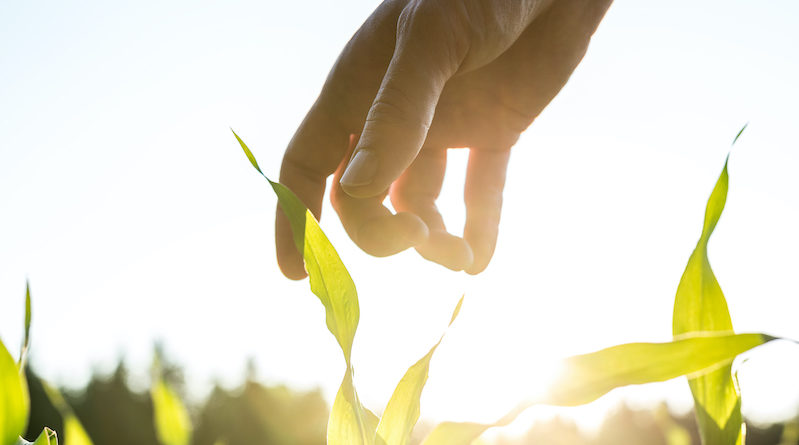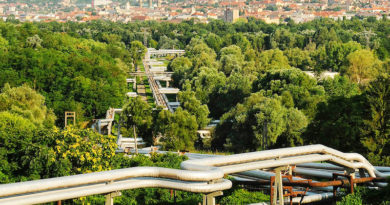
Transition to sustainable food systems
In many OECD countries, agricultural support policies in force today are a reflection of historic concerns from which these policies arose, including global conflicts and famines in the 1900’s. A century later, policy concerns and possibilities to address them have changed drastically. It is therefore about time to rethink the design of agricultural support policies.
Currently a large proportion of agricultural support in OECD countries focuses on production. While the set of rules put in place under the umbrella of the World Trade Organization has drawn attention to the market distorting effects of many of these policies, many countries continue to apply measures that distort incentives of agricultural producers and hamper the transition to more sustainable practices and outcomes.
OECD research highlights areas where policy makers can redirect policies to accelerate transition to resilient, sustainable food systems and to foster economic opportunity.
Global food systems face a triple challenge
A transition to sustainable food systems requires a shift in perspective and a recognition of the interlinkages among agriculture, food and environmental policies. Food systems’ face a formidable “triple challenge” of simultaneously:
· Providing food security and nutrition to a growing global population: the world’s population is expected to reach almost 10 billion in 2050, requiring a significant increase in the production of affordable, healthy and nutritious food;
· Contributing to the livelihoods of people around the world working along the food supply chain: global food systems are essential to the livelihoods of people working on the more than 570 million farms worldwide and are an especially important source of livelihoods in developing countries; and
· Ensuring the environmental sustainability of the sector, while adapting to, and helping to mitigate, climate change: global food systems are not only dependent upon natural resources, but are responsible for the vast majority of global land and water use, and are an important source of greenhouse gas emissions.[1]
Trade-offs and synergies exist among these objectives and no single solution will be suitable for all food systems. Rather, a food systems perspective requires that policy makers take a close look at the ways that policies interact to achieve sustainability goals in the context of the triple challenge.
OECD research provides insights on how policies could usefully evolve to accelerate food systems transformation, in particular to ensure environmental sustainability.
Current policies hamper transition to sustainable food systems
OECD’s Agricultural Policy Monitoring and Evaluation[2] report , which covers agricultural policies in 54 countries, shows that total support to agriculture averaged USD 708 billion per year during 2017-2019. More than half of this support was directly linked to farm productions, in many cases by keeping domestic prices higher than international prices, through a combination of subsidies and trade barriers. These policies impose a burden on consumers, reduce the competitiveness of the domestic food industry, increase the income gap between large and small farmers and can undermine climate change mitigation and sustainable resource use. For example, payments linked to production can undermine efforts at climate change adaptation and mitigation by locking farmers into producing particular crops, regardless of changing climatic conditions.
A shift towards sustainable food systems requires policies that focus on enabling transition in the face of changing climate, technological and economic factors. Climate change and shifting pest and disease risks will alter production possibilities and require new approaches for managing risks.
New digital technologies offer tools for producers to connect to high-value markets, to communicate with consumers highlighting product characteristics, and to navigate complex documentation to manage supply chain relationships.
Evolving global markets and trade relationships mean that linkages among food system actors can shift rapidly, affecting value chain structures. As the pace of change accelerates, it is imperative that policies support the ability of actors within the food system to respond nimbly to manage risks and to take advantage of opportunities.
Policies can simultaneously foster sustainability and economic opportunity
Policies and public investment will shape food systems now and in the future, creating the enabling conditions for sustainable and resilient outcomes and linking producers with consumers and markets. Policy makers can focus on developing policies that will raise the environmental and resource productivity of agriculture, enhance land management practices, minimise pollution discharges, curtail damage to biodiversity, and strengthen policies that avoid the use of production and input subsidies that tend to damage the environment. This will require a mixture of policy measures, including regulations, as well as investments in innovation, training, and infrastructure.
The experience of Covid-19 has highlighted the importance of transparency on market conditions and policies to reduce market uncertainty, expose bottlenecks and identify risks.
The Agricultural Market Information System (AMIS) in which the OECD participates, has played an important role in helping market participants and policymakers develop effective responses and avoid counterproductive export bans.
Investments in collecting information, monitoring market and policy developments, and communicating clearly about the findings provide clear payoffs when unexpected disruptions occur.
An open, predictable, trading system plays a role in addressing the triple challenge facing the food system. The OECD-FAO Agricultural Outlook[4] shows that international trade will become increasingly important over the coming decade in moving food from where it can be produced to where demand is growing. . . Trade helps pool risks associated with changing weather and with pest and disease, contributing to resilient sustainable agricultural systems, while also supporting rural livelihoods. Trade also plays an important role in connecting farmers to markets and thus ensuring farm incomes.
Food systems have shown a remarkable resilience to date in the face of disruptions from Covid-19. This crisis provides an opportunity to repurpose agricultural policies, to enhance predictable, transparent markets, to foster economic opportunity and to support a transition to sustainable systems.




